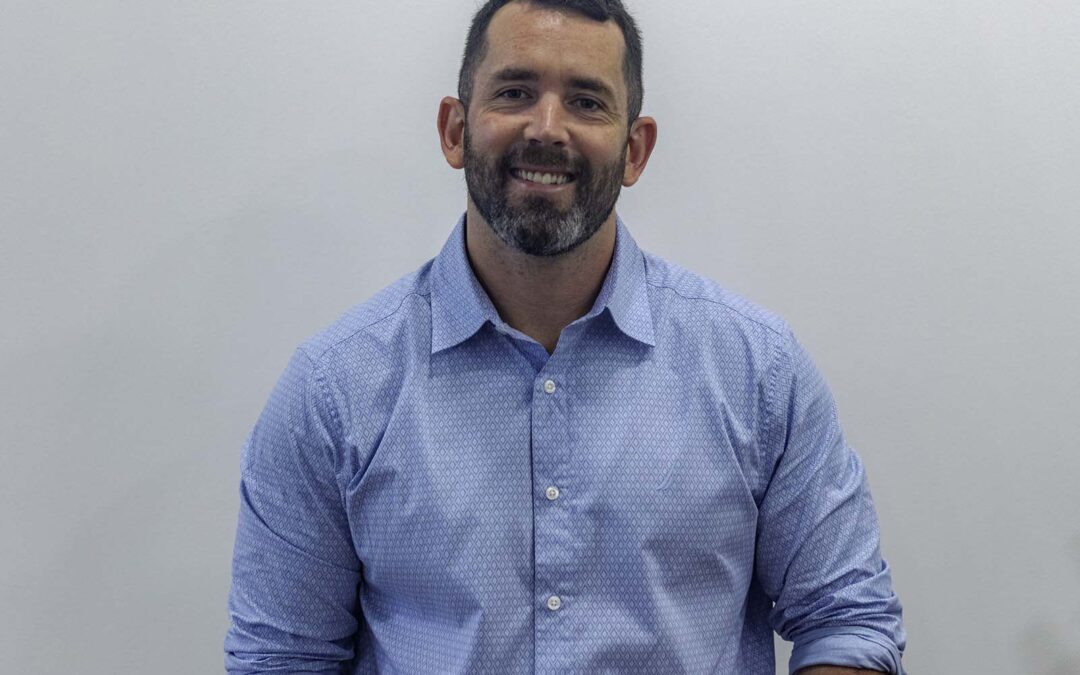Am I Helping or Enabling Substance Abuse?
Understanding Helping in Substance Abuse Support
When someone you care about struggles with substance abuse, your natural instinct is to reach out and provide support. Helping substance abuse recovery means creating an environment that genuinely promotes positive change while maintaining your own emotional well-being.
True healthy support involves several key components that work together to encourage lasting recovery:
- Supporting accountability rather than shielding from consequences
- Encouraging professional treatment and evidence-based therapies
- Maintaining consistent boundaries that protect both you and your loved one
- Promoting healthy lifestyle changes that support long-term sobriety
Setting Boundaries for Effective Support
Setting clear boundaries serves as a foundation for effective support. These boundaries protect you from emotional exhaustion while creating a structure that helps your loved one understand what behaviors are acceptable. When you maintain these limits consistently, you demonstrate that change is both necessary and possible.
Encouraging Recovery through Connection and Celebration
Recovery encouragement looks like celebrating small victories, attending family therapy sessions, and learning about addiction as a medical condition. It means connecting your loved one with professional resources rather than trying to manage their recovery alone.
The Role of Professional Intervention in Recovery
Professional intervention brings clinical expertise that family members simply cannot provide. Licensed therapists, addiction specialists, and medical professionals understand the complexities of substance abuse and can offer evidence-based treatments like Cognitive Behavioral Therapy, medication-assisted treatment, and structured support groups that create the best foundation for lasting recovery. For those struggling with opioid addiction specifically, seeking professional help such as the services offered by Insight Recovery can be a vital step towards recovery. Their comprehensive approach includes various addiction treatment options tailored to individual needs which could significantly enhance the chances of successful recovery.
You may also like: Opioid Rehab: 5 Things to Prepare for Your First Call
Recognizing Enabling Behaviors and Their Consequences
Enabling addiction occurs when well-intentioned actions inadvertently shield someone from experiencing the natural consequences of their substance use. Unlike helping, which promotes accountability and positive change, enabling creates a protective barrier that allows destructive behaviors to continue unchecked.
Common Enabling Actions
Harmful enabling behaviors for substance abuse manifest in various ways that may seem caring but actually perpetuate addiction. These can include:
- Financial support – Providing money, paying bills, or covering debts when funds are being used for substances.
- Making excuses – Calling in sick for someone, lying to family members, or creating cover stories for their behavior.
- Taking over responsibilities – Handling their obligations, childcare duties, or household tasks they’ve neglected.
- Covering up consequences – Bailing them out of jail, paying legal fees, or cleaning up messes they’ve created.
- Providing housing or resources – Allowing continued residence without conditions when substance use occurs in the home.
These actions are often driven by a desire to help but can have serious repercussions. For more on the motivations behind these behaviors and their impact, see this article on enabler behavior.
The Consequence Shield
When natural consequences disappear, the motivation for change diminishes significantly. Someone struggling with substance abuse may never recognize the severity of their situation if family members consistently intervene to minimize discomfort or embarrassment.
This is where the danger of keeping secrets about addiction comes into play. Addiction denial becomes reinforced through enabling patterns. When loved ones minimize the problem (“it’s just a phase”), make justifications (“they’re stressed from work”), or avoid addressing the issue directly, they inadvertently communicate that the behavior isn’t serious enough to warrant change.
Understanding these enabling behaviors and their consequences is crucial in breaking the cycle of substance abuse and addiction. For more detailed insights into this subject, refer to this comprehensive guide on enabling behaviors.
Five Key Differences Between Helping and Enabling
Understanding the differences between helping vs enabling becomes clearer when examining specific distinctions that separate supportive actions from harmful ones. These substance abuse support distinctions can guide your approach when supporting someone struggling with addiction.
1. Impact on Behavior
Helping encourages accountability by allowing natural consequences to occur while providing emotional support. You might say, “I love you, but I won’t bail you out of jail again. Let’s talk about treatment options when you’re ready.”
Enabling shields the person from consequences, allowing harmful behaviors to continue unchecked. This looks like repeatedly calling in sick for someone who’s too intoxicated to work or paying their rent after they spent money on substances.
2. Boundaries and Consistency
Helping maintains firm, consistent boundaries that protect both parties. You establish clear limits: “I won’t give you money, but I’ll drive you to a treatment center.”
Enabling breaks or ignores previously set boundaries, often driven by guilt, fear, or emotional manipulation. You might find yourself lending money “just this once” despite past promises not to.
3. Recognition of the Problem
Helping acknowledges the severity of substance abuse and addiction and actively encourages professional intervention. This could involve researching treatment options such as sober living or outpatient rehab, attending family therapy sessions, and supporting evidence-based recovery approaches.
For instance, if you’re a parent dealing with an addicted child, it’s essential to understand how to navigate this challenging situation effectively. Resources like this guide for families can provide valuable insights into helping your child without enabling their substance abuse.
On the other hand, Enabling minimizes or denies the addiction’s impact, making statements like “they just need to try harder” or “it’s not that bad compared to others.” It’s vital to recognize these signs early on and seek professional help if necessary.
4. Long-term Perspective
Helping focuses on sustainable recovery and long-term well-being, even when it means enduring short-term discomfort or conflict.
Enabling prioritizes immediate peace or temporary relief, inadvertently perpetuating destructive addiction cycles that worsen over time.
When addressing specific types of substance abuse such as prescription drugs or benzos, it’s crucial to remember these differences.
If you find yourself in a situation where professional help is needed, don’t hesitate to reach out for assistance through services like those offered at Insight Recovery Center by visiting their contact page.

The Role of Family Dynamics in Helping vs Enabling
Patterns of addiction within family dynamics often develop gradually, with loved ones making well-intentioned choices that unintentionally support destructive behaviors. The desire to maintain family harmony can lead parents, spouses, and siblings to downplay the severity of addiction or avoid confronting uncomfortable truths. When a family member struggles with substance abuse, relatives frequently prioritize keeping peace over addressing the underlying problem.
This protective instinct shows up in various ways:
- Covering for missed work or social obligations
- Avoiding discussions about concerning behaviors
- Making excuses to extended family or friends
- Continuing financial support without conditions
The emotional toll on families trapped in these cycles can be overwhelming. Anxiety, depression, and chronic stress become common as family members tiptoe around, never knowing what each day might bring. Sleep disruption, relationship strain, and social isolation often follow as addiction becomes the family’s main focus.
Supporting loved ones with substance abuse requires a fundamental change in approach. Learning about addiction as a medical condition helps families understand that their loved one needs professional intervention, not protection from consequences. Family therapy provides tools for setting healthy boundaries while maintaining emotional connection.
Learning to separate the person from their addiction allows families to offer love without enabling destructive choices. This transformation requires courage, consistency, and often professional guidance to navigate the complex emotions involved.
However, it’s crucial for families to recognize when they are crossing the line from helping to enabling. This shift in perspective can be challenging but is essential for fostering recovery and healing within the family unit.
Professional Support for Breaking Enabling Cycles
Breaking free from enabling patterns requires specialized guidance that goes beyond good intentions. Professional addiction treatment offers evidence-based approaches that address both the substance abuse and the family dynamics that sustain it.
Evidence-Based Treatment Options
Modern addiction treatment encompasses multiple therapeutic modalities:
- Individual therapy using Cognitive Behavioral Therapy (CBT) to identify triggers and develop coping strategies
- Group sessions that provide peer support and shared accountability
- Medication-assisted treatment (MAT) for opioid and alcohol dependencies, combining medical intervention with counseling
- Behavioral interventions targeting specific addiction patterns and relapse prevention
- Specialized treatments for specific substances, such as cocaine or benzodiazepines
Integrating Family Support
Effective treatment recognizes that addiction impacts entire family systems. Family support programs within treatment plans help relatives understand their role in recovery while addressing their own emotional needs. These programs teach healthy communication patterns and provide tools for maintaining supportive relationships without enabling harmful behaviors.
Community Resources for Families
Therapy groups for families extend beyond clinical settings. Al-Anon offers support specifically for families affected by alcoholism, while Co-Dependents Anonymous addresses broader patterns of enabling behavior. These peer-led groups provide ongoing support and practical strategies from others who understand the challenges firsthand.
The Power of Early Intervention
Seeking professional help early in the addiction cycle significantly improves outcomes. Early intervention prevents enabling patterns from becoming deeply entrenched while the individual’s motivation for change remains stronger.
Practical Steps to Transition from Enabling to Helping Substance Abuse
Making the transition from enabling to helping requires courage, self-awareness, and a commitment to change long-established patterns. This journey begins with honest self-examination of your current behaviors and their impact on your loved one’s recovery.
Self-Reflection and Professional Guidance
Start by identifying your personal enabling behaviors through counseling or structured self-reflection. A therapist can help you recognize patterns you might not see clearly, such as making excuses for missed work or providing money that could fund substance use. Professional guidance becomes essential when you feel uncertain about how to best support your loved one without crossing into enabling territory.
Establishing Healthy Boundaries To Help Substance Abuse
Boundary setting addiction support involves creating clear limits on acceptable behaviors without carrying guilt or shame. This might mean:
- Refusing to lie to employers about absences
- Not providing financial assistance for non-essential items
- Declining to clean up legal or social consequences of their actions
- Setting specific conditions for continued support
Balancing Accountability with Compassion
Encouraging accountability while maintaining empathy requires walking a delicate line. You can express love and concern while refusing to shield your loved one from natural consequences. This approach honors both your relationship and their need for genuine recovery motivation, creating space for authentic healing to begin.






